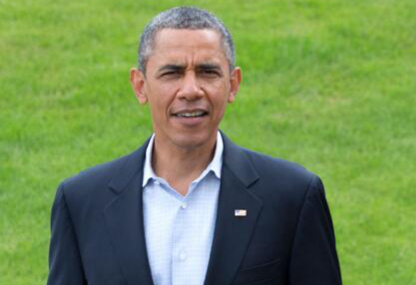Executive
A Decade Later, How the Bergdahl Affair Predicted Today’s Politics

This June marks 10 years since President Obama approved a lopsided and politicized prisoner trade by freeing five Taliban leaders from military detention in Guantanamo Bay, Cuba, in exchange for U.S. Army Sgt. Bowe Bergdahl.
Bergdahl release – part of Taliban plan
In early 2014, Bergdahl had been a Taliban hostage for nearly five years, had spent more than three of those years in a small metal cage, and was the longest-held American prisoner of war since Vietnam. But as news spread following the trade that Bergdahl had intentionally walked off his outpost alone and unarmed into enemy territory, the deal that Obama announced in the White House Rose Garden as a cheerful homecoming turned into something much darker.
Rumors surged through the media that Bergdahl had set out to join the Taliban and convert to Islam. This wartime fable was originally planted in a British newspaper years earlier by the Taliban itself. But that didn’t discourage U.S. political operatives – with former Ambassador to Germany Rick Grenell first among them – from spouting the gossip on cable news and into the American consciousness. For Grenell and the pundits who played along, it was just politics as usual. Ten years later, the Bergdahl affair stands out as a turning point, the first time in modern American history that enemy propaganda was embraced and leveraged for mainstream partisan success.
Obama suffers
Following the trade, Obama’s approval ratings hit their lowest levels of his presidency. When talking heads discussed the case, they repeated the treason smear, just as the Taliban had hoped it would. The rumor was published in 2010 in The Times of London after a reporter got the salacious scoop from a savvy Taliban propagandist. The story, which alleged that Bergdahl had changed his name to Abdullah and was teaching bomb-making seminars to young mujahideen, was too good to let fact-checking get in the way.
Abdullah Bergdahl was a popular folktale and not only among the infantry sent out to look for him. At one point in Kabul, the highest-ranking U.S. intelligence officer in Afghanistan, Lt. Gen. Michael Flynn, confided to an American reporter that Bergdahl was “a jihadi.” In 2015, not long after Flynn joined Donald Trump’s nascent presidential campaign, Trump started referring to Bergdahl as a “dirty rotten traitor.” At rallies, he would pantomime shooting the soldier himself, and the crowds would roar. (After a lengthy court-martial and years of investigations, the U.S. Army never charged Bergdahl with treason. He was found guilty in 2017 of desertion, a verdict that was vacated last summer by a federal judge.)
Trolls and bots
Given our now-debased political discourse, it’s tempting to forget just how many norms Trump shattered along his path to power. But the Bergdahl affair stands out as a model for much of what followed. According to research conducted by professors at Clemson University in 2018, Bergdahl was a clear example of Russian-controlled social media accounts amplifying divisive issues on American platforms. With every new “traitor” soundbite, a round of death threats arrived in Bergdahl’s hometown, and Trump accomplished what the Taliban and Russian operatives had intended.
Today, trolls and bots from Iran, China, Russia, and beyond play this game every day, at all hours, across every digital platform. Propagandists in Tehran and Moscow now trust that their messaging will take root in the West thanks to the simple arithmetic of clickbait and the lucrative work of “engagement farmers” like Jackson Hinkle. What had not so long ago been taboo – leveraging enemy propaganda for domestic consumption and money – is now commonplace, and not only from hustlers like Hinckle.
The recent case of Alexander Smirnov would make a good comedy had it not actually happened in the halls of Congress. A serial fabulist who claimed to have juicy stories about Hunter Biden, Smirnov was heralded as a key witness for the House Oversight Committee’s bumbling campaign to impeach President Biden. Earlier this year, not long after Smirnov brought the FBI some particularly juicy Hunter Biden gossip, the Justice Department disclosed that he was likely working as a Russian intelligence asset. Oops.
Atrocity denial on the left
On the left, we have student groups, activist-journalists, and investigative news outlets unwittingly (one hopes) blasting out messages that echo those of Hamas and the Houthis, designated terrorist groups and proxy armies for a regime in Tehran that beats teenage girls to death for not wearing headscarves. For months, The Intercept has been disputing the indisputable fact that Hamas used rape as a weapon of terror on Oct. 7. Such atrocity denial not only contradicts eyewitness accounts and official U.N. reports (and insults the families of the dead), but also launders Hamas’ strategic global messaging, free of charge.
Taken together, Russia, Iran, and Hamas currently hold more than a dozen Americans as political prisoners and hostages (including the bodies of three killed in Gaza). And yet, on social media, in the streets, and on Capitol Hill, Russian and Iranian propaganda operations are widespread. To our adversaries, American media isn’t so complicated; the most extreme voices dominate the airwaves and, in the process, become both assets and marks for ongoing foreign influence.
Is the Bergdahl affair repeating itself?
Ten years ago this month, American politics was poisoned by the cynical exploitation of a troubled young soldier who had survived five years of torture and caged captivity. In all its ugliness and cruelty, the Bergdahl affair was a signal of a culture that was losing faith in the truth and is now rapidly losing faith in itself. This election year, it’s worth remembering how we got here.
The views expressed herein are the author’s own, and not all of them are simpatico with CNAV. – Ed.
This article was originally published by RealClearPolitics and made available via RealClearWire.
Michael Ames is a free-lance journalist who writes for Rolling Stone, The New Yorker, Harper's, and other magazines, and occasionally for RealClearPolitics.
-

 Accountability2 days ago
Accountability2 days agoWaste of the Day: Principal Bought Lobster with School Funds
-

 Constitution2 days ago
Constitution2 days agoTrump, Canada, and the Constitutional Problem Beneath the Bridge
-

 Executive20 hours ago
Executive20 hours agoHow Relaxed COVID-Era Rules Fueled Minnesota’s Biggest Scam
-

 Civilization20 hours ago
Civilization20 hours agoThe End of Purple States and Competitive Districts
-

 Civilization4 days ago
Civilization4 days agoThe devil is in the details
-

 Executive4 days ago
Executive4 days agoTwo New Books Bash Covid Failures
-

 Civilization3 days ago
Civilization3 days agoThe Conundrum of President Donald J. Trump
-

 Executive4 days ago
Executive4 days agoThe Israeli Lesson Democrats Ignore at Their Peril






